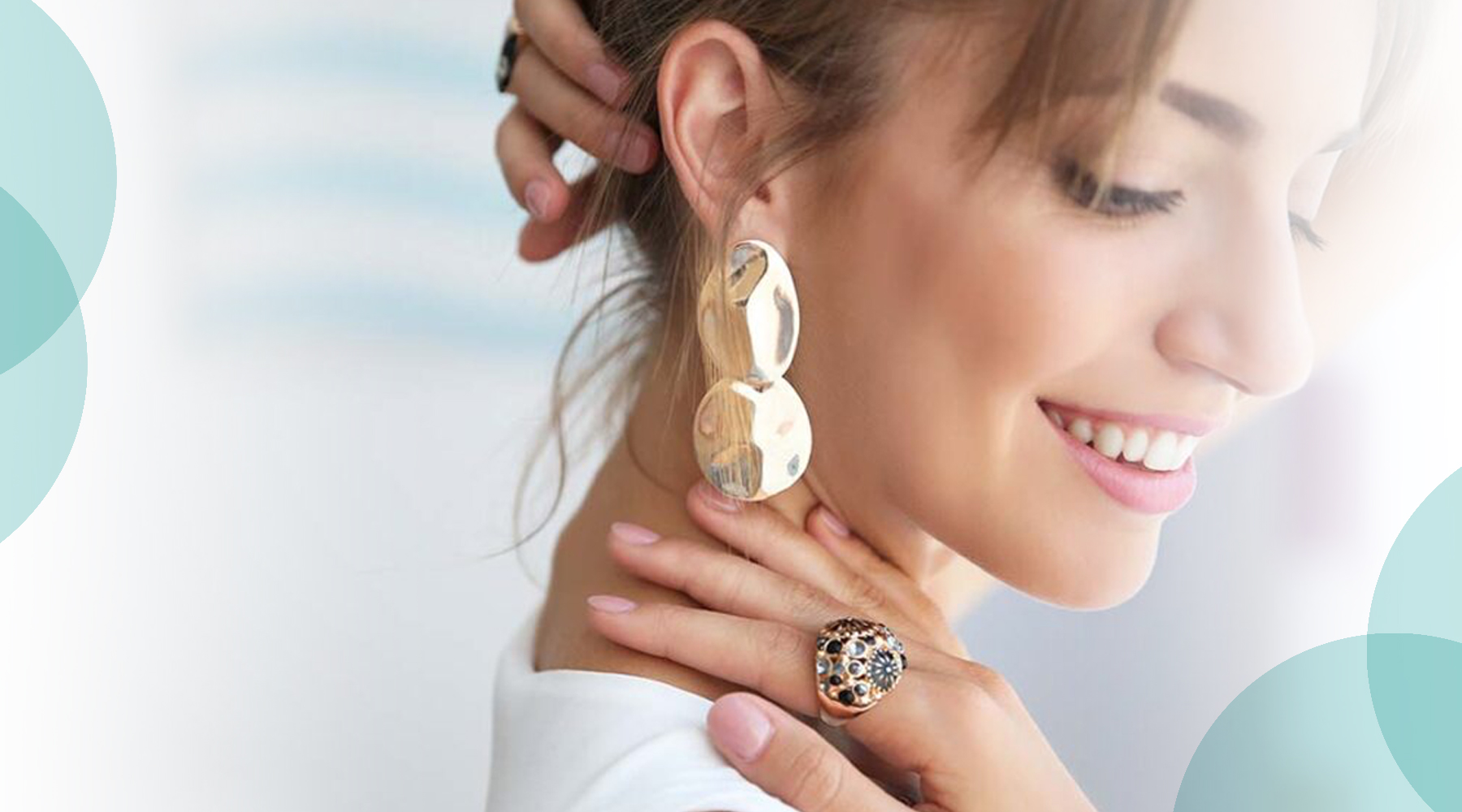It’s no mystery that top-quality jewelry is the safest for everyone’s skin. But let’s face it, buying everything on the 14, 18, or 24-carat scale isn’t always a realistic option. With that said, the more sensitive your skin is, the more you should look at fine jewelry as an important investment rather than a splurge.
You might feel like a small bump here and there isn’t a real problem, but jewelry-related skin issues have a way of spreading over time. So don’t dismiss even the teeniest signs of sensitivity. Your body is sending a warning and if you don’t listen, you could wind up with contact dermatitis and rashes that spread. The good news is, allergic reactions are easily treatable and avoidable. You just have to stop wearing the wrong jewelry and start shopping for ideal alternatives.
The first step to irritation-free accessorizing is figuring out what you might be allergic to. Chances are, if you have sensitive skin, you already know that much by now. However, when we want to wear the object of our desire, it’s easy to deny when it starts to make us itch, even if only at first. As someone with sensitive skin, I long tried to convince myself that the pros of well-loved pieces outweighed the cons. Inevitably, those cons only became more unavoidable and obvious. For my skin’s sake, I ultimately donated those pieces to those who could actually wear them and never looked back. If you’re reading this, it might be time you do the same.
If you think you might have sensitive skin, here’s what to look for when you’re ready to jewelry shop.
Signs of Sensitive Skin
Everyone’s skin gets irritated from time to time. For those with sensitive skin, it can happen more often than not. If you’re having an allergic reaction, you’ll likely see redness, flaking, and even maceration of the skin. You may also notice tiny, itchy bumps under the skin.
Different kinds of jewelry create different skin reactions. Nine times out of ten, however, dermatologists say the main culprit that causes most skin reactions is nickel or cross reactants to nickel like cobalt. These are typically found in silver and low-quality jewelry.
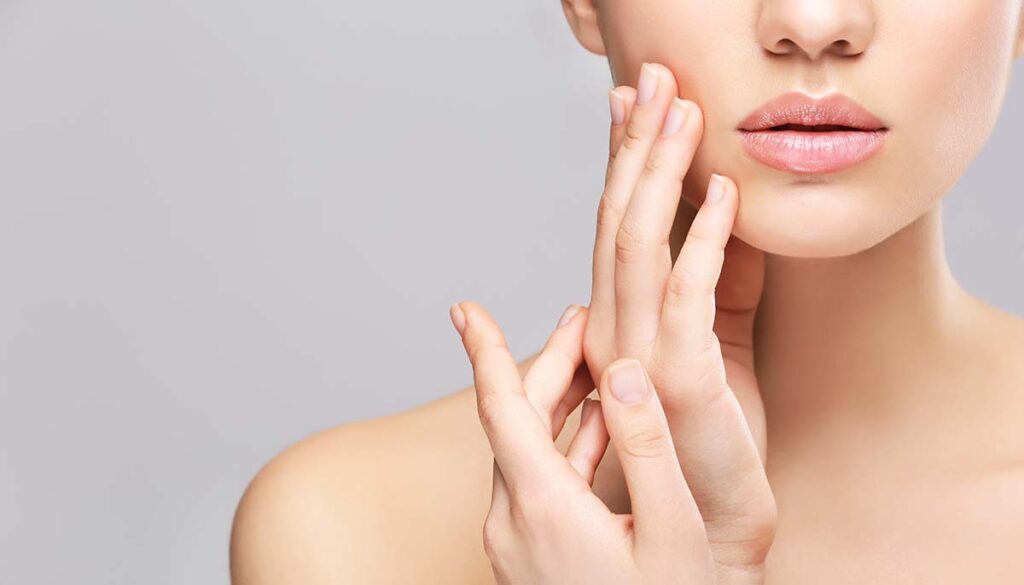
While different people respond to different metals, the skin allergies or skin responses tend to be the same. The good news is, it’s easy to figure out what you’re allergic to and once you do, you’ll know what to avoid. If nickel causes you to have a reaction once, it’ll likely always cause a similar reaction. Double-check any and all jewelry bought from jewelry stores and department stores. Stainless steel is sometimes manufactured with nickel or iron, making it completely unwearable for those with this allergy.
Don’t be tempted to buy these kinds of items – it’s not worth it! You won’t be able to wear the jewelry for any length of time, and it may make your reaction to the metal worse over time.
What to Avoid

No matter how shiny or sparkly, you must avoid allergens within the jewelry. If you have noticed even a small reaction to certain metals, it’s best to stay away from them. As with many allergens, it’s possible that your reaction will gradually get worse. For instance, if you suffer from a nickel allergy, it’s better to be safe than sorry. In other words, stay away from the silver family and stick with white gold or gold. If you really love silver, you need to be absolutely sure there is no trace of the allergen in it, but that’s often hard to do. So it’s best to steer clear.
If your skin is super sensitive, you may only be able to safely wear solid gold. But don’t toss out your beloved, non-gold jewelry just yet. If it happens to be made from nickel, take it to a jeweler and have them plate it with some other, more skin-friendly metal like platinum. Unlike some common metals found in jewelry, it’s naturally hypoallergenic.
If you’re going with stainless steel, it needs to be surgical stainless steel because it’s made of pure steel. Pure metals are less likely to cause skin reactions.
Say Goodbye to Costume Jewelry
Costume jewelry can be loads of fun, price-friendly, and surprisingly real-looking on occasion. There’s no doubt about that. However, if you suffer from sensitive skin, there’s going to be a big difference for you.
Long story short, you definitely shouldn’t be wearing the fake stuff if you know you’re allergic to lower-quality metals. Costume jewelry is notorious for using nickel, which as discussed, causes more skin reactions for people than any other metal. So always be wary of wearing it.
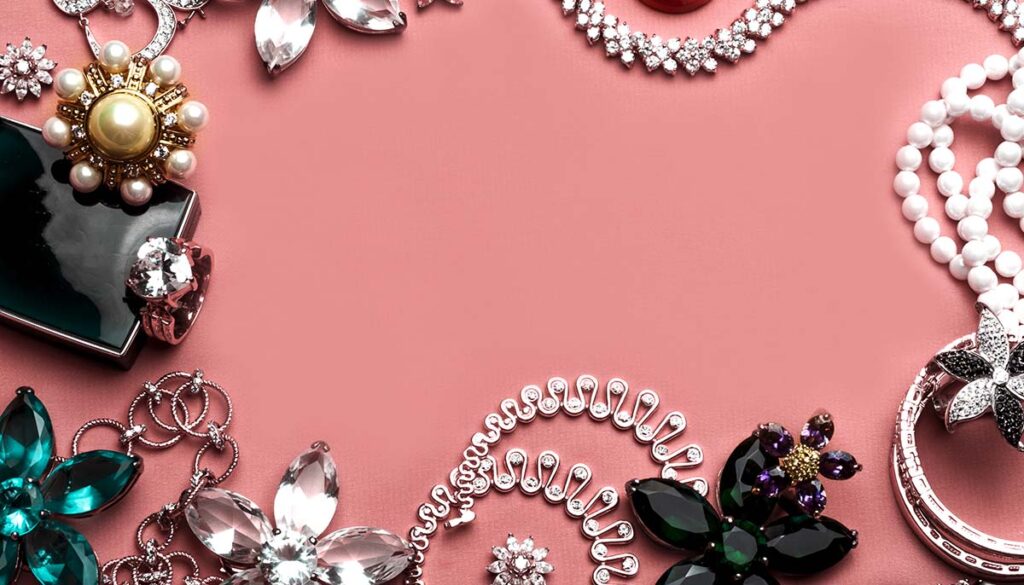
If you suspect nickel might be mixed in with another metal, look to your skin for answers. Nickel tends to leave greenish, bluish, or brown stains on the skin where the jewelry touches. It can also lead to a rash.
Costume jewelry is especially harmful to those with newly pierced ears or other piercings. While your ears are healing, you should not change out your studs for at least three months. After that, you should strongly consider swapping them out for only metals of a similar or higher grade. Otherwise, you might run into issues with inflammation, hyper tenderness, and painful infection. If you’re a victim of this, take your jewelry out immediately.
If you have some fabulous fake pieces you just can’t part with, here are some tips for wearing costume jewelry more safely, compliments of Walk-In Dermatology.
What About Layering?
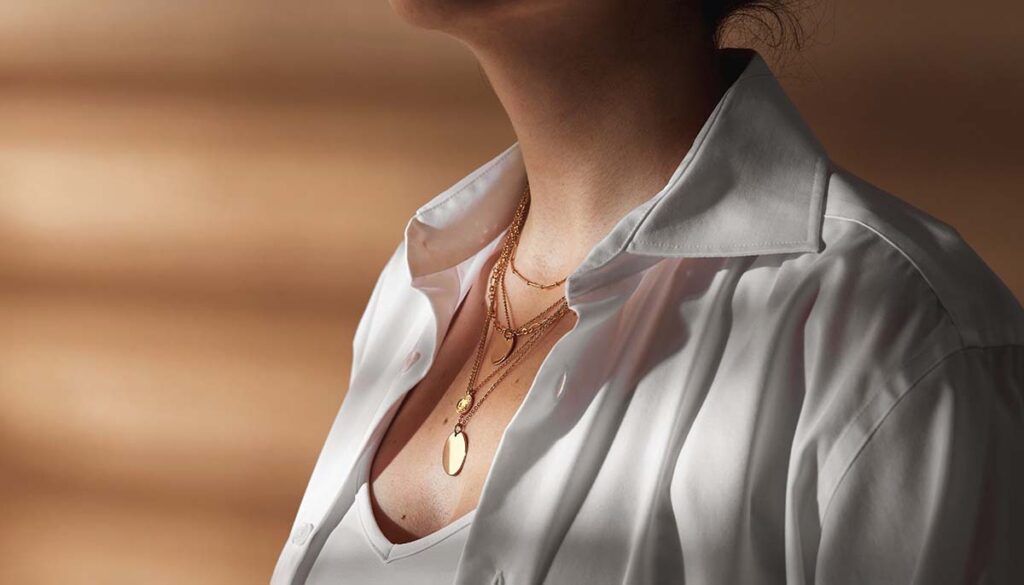
The more you expose your skin to metals with allergens, the more likely you will be to irritate your skin. In other words, multiple pieces, especially layers, or larger jewelry will be that much more likely to create moisture beneath your skin.
When moisture mixes with jewelry, small elements of metal seep into your skin and increase the likelihood of a reaction. The more you wear those pieces, the more those tiny elements collect. Eventually, you may notice a reaction that seems to come out of nowhere. In reality, you were building to it every time you layered jewelry that wasn’t great for your skin.
Wear Plated Jewelry With Caution
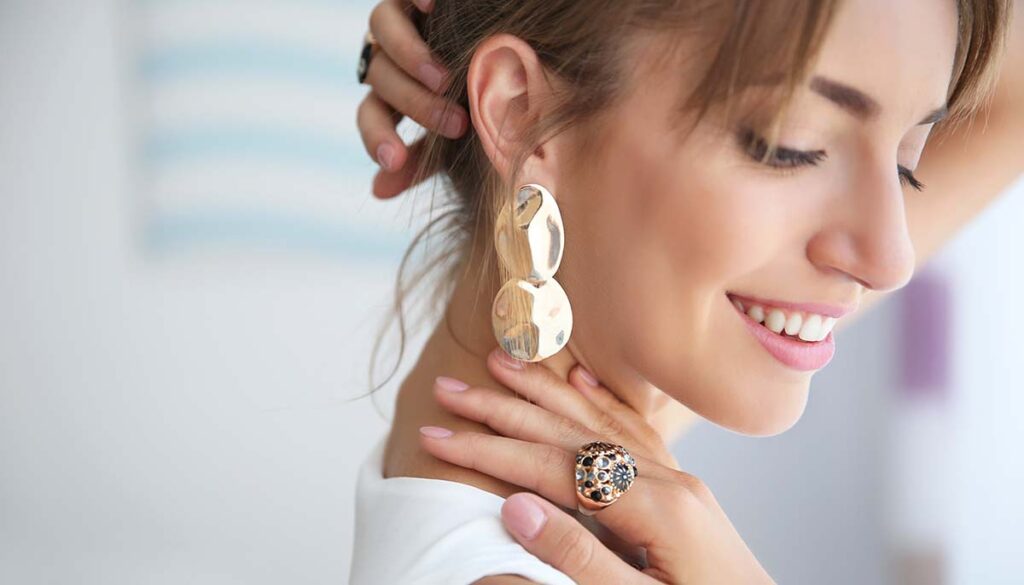
Plated jewelry doesn’t just offer high-end-looking pieces for significantly less money, plated options can also protect your skin from questionable elements that you might be allergic to. However, dermatologists say to be mindful as the jewelry wears down. You could inevitably have a reaction to the inner components. So if you already know you can’t wear silver, plating it with gold might be a quick fix, but it’s not a long-term solution.
Bottom line: Take care of your plated jewelry. The better condition it’s in, the longer the protective layer will last.
Be Careful With Clasps and Hooks
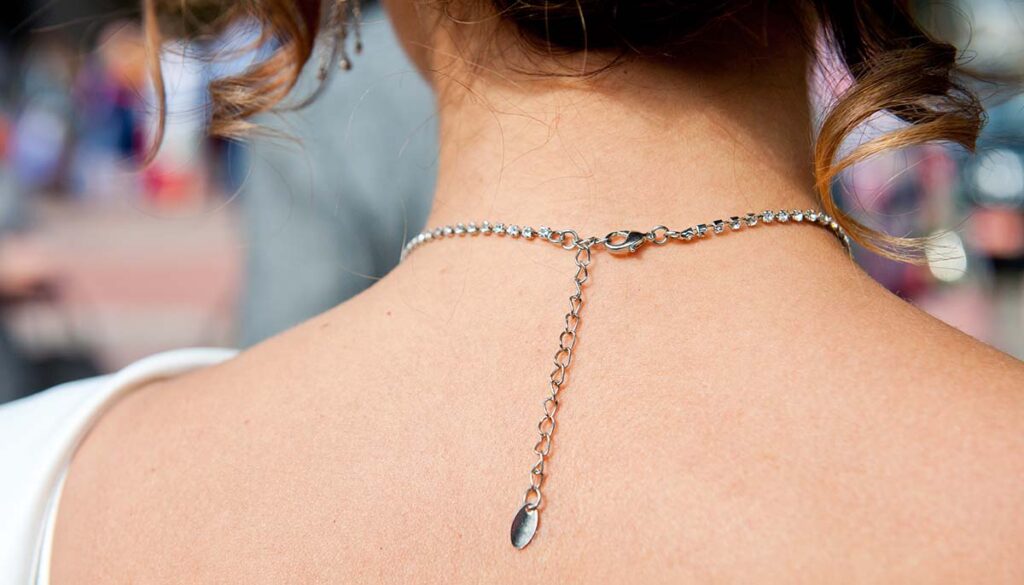
No matter how pretty or pricey a quality piece of jewelry may be, jewelry manufacturers sometimes use clasps and hooks made of cheaper materials to cut back on costs. So know what you’re buying before you try it on. If you’re jewelry shopping, especially online, look into what metals the clasps and hooks are made from. Ideal clasp materials include niobium or stainless steel.
What to Do if You Have a Reaction
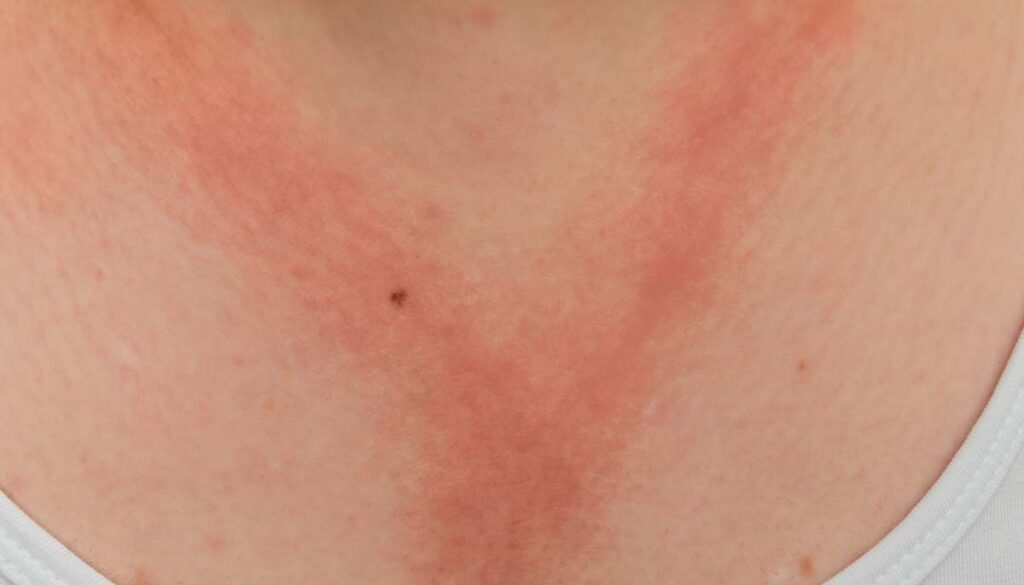
If you have a reaction, no sweat. Top dermatologists recommend 1% hydrocortisone ointment as the best form of treatment. Thankfully, this over-the-counter buy is incredibly easy to get your hands on. It’s also recommended that you avoid creams at first, as it could exacerbate the issues your already irritated skin is having.
Once your skin is soothed, you can move onto steroids and emollient creams. If nothing seems to work, you should try phototherapy procedures, which is exposing the skin to a controlled amount of artificial UV light.
What to Look For

If you think or know you have sensitive skin, it’s best to learn your skin’s sensitivities and shop accordingly. So arm yourself with data before you jewelry shop until you drop.
For most, if the jewelry is not 100 percent sterling silver or at least 14-karat gold, your skin is going to have some kind of flare-up. 5 to 10% of people are believed to have a nickel allergy. And if you expose your skin to nickel repeatedly, you increase your chances of eventually developing the allergy as well. So why risk it?
Copper is also a well-known skin allergen. Like nickel, copper contains alloys (a combination of the metal with another metal or nonmetal). And if you want to avoid irritating your skin, you should avoid combined elements when you can. Of course, it’s not always easy to tell what you’re looking at. To avoid unpleasant surprises with the jewelry you buy, receive, or inherit, invest in a metal testing kit.
Take Extra Special Care of Your Jewelry (And Your Skin)
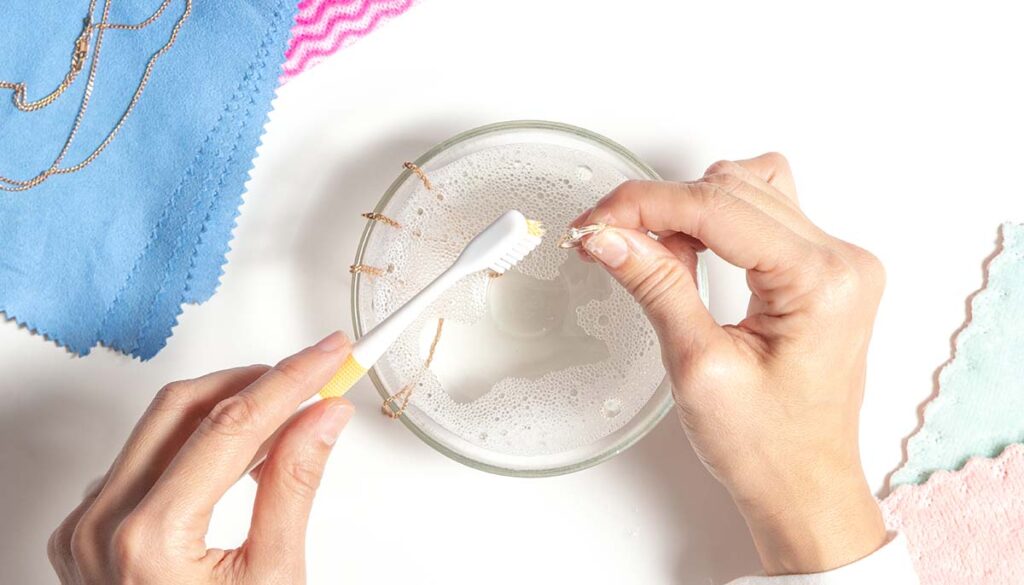
If you’re not washing your jewelry, it’s time to start. This will keep your skin and precious pieces in the best shape possible. Your everyday jewelry collects dirt and buildup on a regular basis. And so, that grime collects on your skin.
The takeaway: soak your jewelry in a proper cleaning solution once a week. If you still see build-up, take a toothbrush and scrub the smaller, harder-to-reach places of your items. Also, you should be washing your skin with a mild cleanser, especially if you have skin allergies and you’re a jewelry wearer.
Read More: Women in Business: How This Jewelry Designer Turned Her Passion Into a Career


